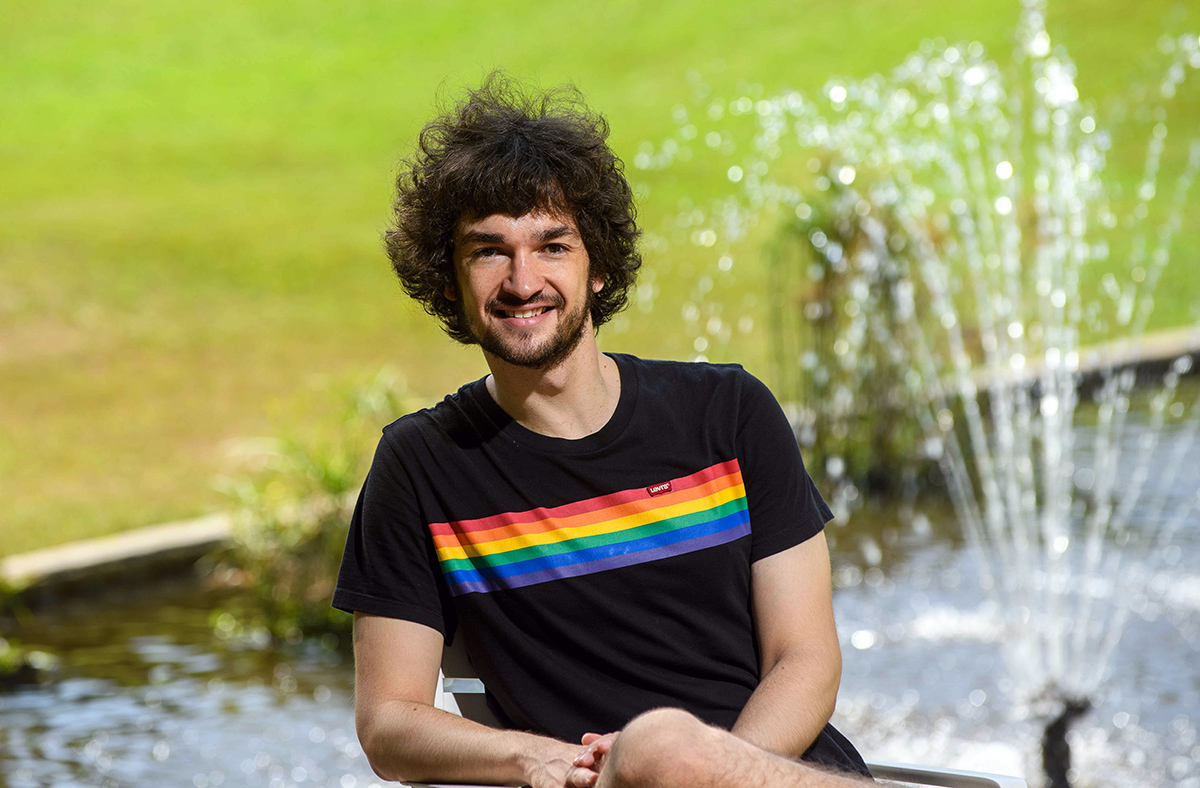Are you a journalist? Please sign up here for our press releases
Subscribe to our monthly newsletter:

Dr. Lorenz Adlung – a writer, public speaker, and systems biologist from Heidelberg University and the German Cancer Research Center, Heidelberg, Germany – is conducting his postdoctoral research in the Immunology Department of the Weizmann Institute of Science under the guidance of Prof. Ido Amit and Prof. Eran Elinav. He came to the institute in autumn 2017 and is planning to stay until spring 2021.
Right before the recent quarantine and his departure for a short visit to Germany, we asked him a few questions about his stay at the Weizmann Institute.
I am exploring how our immune system interacts with all the bacteria that live inside us. The relationship between our body and the bugs in our guts is complicated, but what’s not complicated? I use laboratory experiments in combination with computer simulations to better understand our cells and thus ourselves.”
It’s paradise. The campus itself with all its elements: The springs, meadows, palm trees, fruits and flowers, the architecture, the wide open spaces. The atmosphere is peaceful, welcoming, friendly, motivating and inspirational. I feel at home on campus. I don’t see it as a place of work, I see it as a place of life and delight, intellectually and emotionally. That’s exactly what I’d expected after I came here first in December 2016 for a couple of days, for interviews.”
It’s scientifically excellent, due to the financial and technical infrastructure, and (maybe more importantly) due to the people and their mindset. Science comes first. Everybody follows that notion ̶ not in a hostile way, but with openness and empowering support. The Weizmann community provides an environment to foster creativity and thus scientific excellence.”
The transparent communication of measures on campus was helpful. This was in stark contrast to the miscommunication by the Israeli government. As a resident advisor at the Weizmann Institute, I’ve been experiencing both sides of existing challenges, e.g. explaining to new residents how to work from home efficiently, while being forced to work from home myself. Conditions of isolation, which compromise our life and our science, are obviously hard to handle. This is particularly true for the Weizmann community, because we grow strong through our interactions. But given the circumstances, I think we’re doing relatively well.”
The relationship between our body and the bugs in our guts is complicated, but what’s not complicated?
Scientific outreach is amazing. It’s so much fun to communicate your science (i.e. sharing your passion and enthusiasm for what you’re doing!) It helps you to think out of the box and be creative. If you can conceptualize your research in a way in which a lay person will understand, then future students, potential collaboration partners from different disciplines, journal editors and funding agencies will also appreciate your work. For example, I do a lot of science slam poetry: I write poems and rap lyrics about scientific topics and perform them for the lay public. Earlier this year, I was rewarded for these efforts by a public foundation with funding to produce my first Science Rap EP, which is super exciting.
Besides, I think it is our responsibility as scientists to share our findings openly, in a comprehensible way, with the public. They are paying for our research with their taxes. Explaining to them what we are doing with their money and why this is important will help to gain their interest and trust, which is to the mutual benefit of science and society.”
Depending on the definition of near future. I am super excited to start my own research group in 2021. It will be a dream come true. As of now, I can’t disclose any details, so make sure to follow me on social media or check my website lorenzadlung.com in order not to miss it… Stay tuned.
-